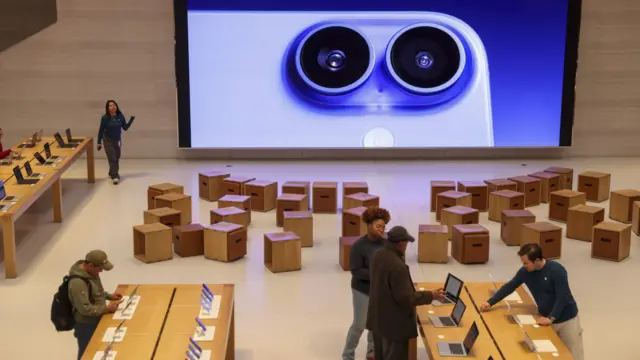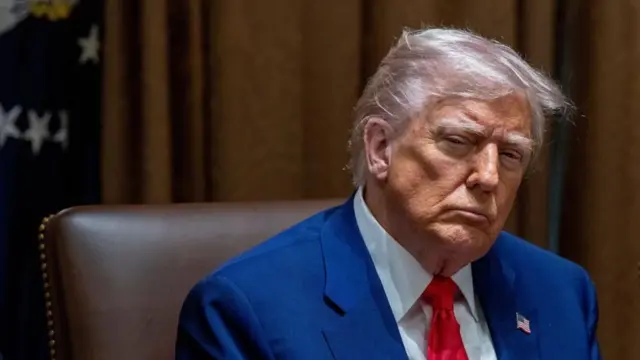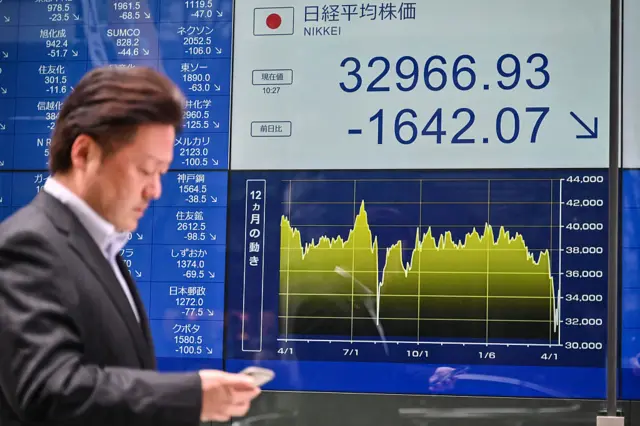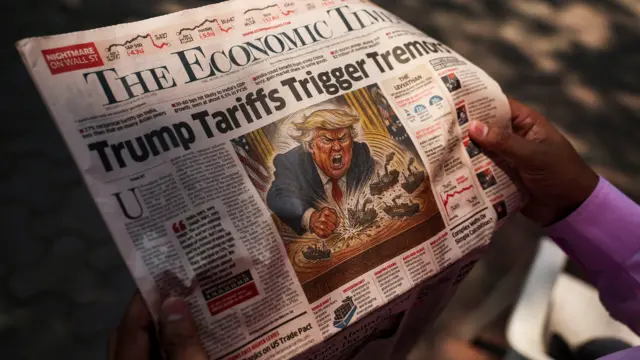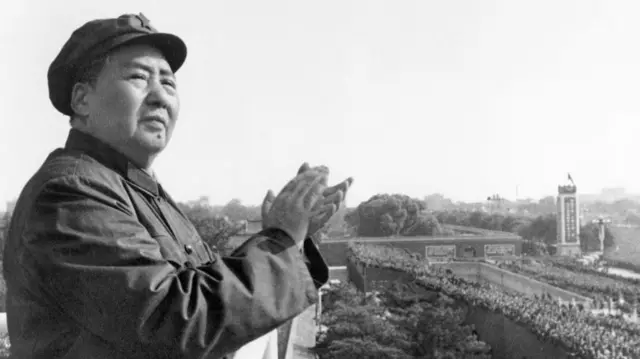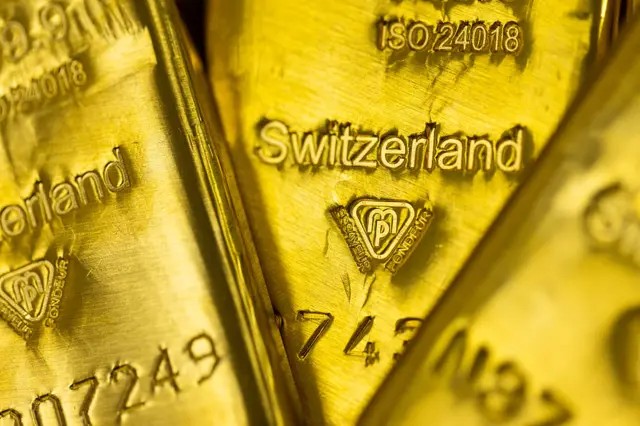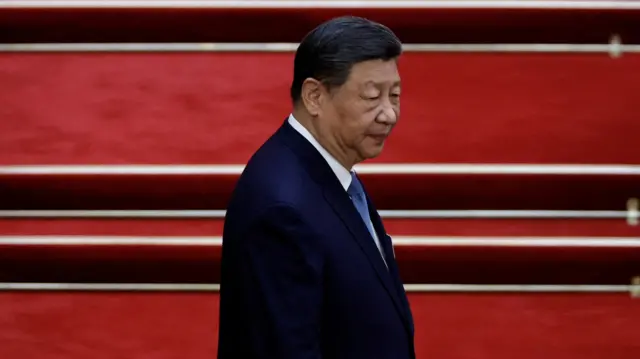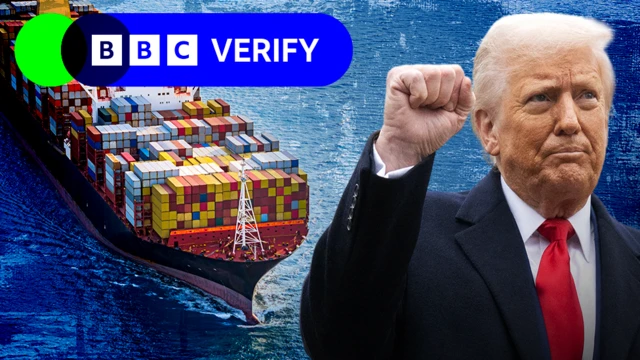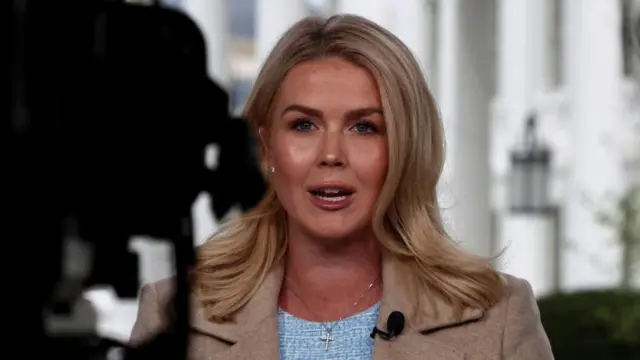A mixed picture for Asian share marketspublished at 06:03 BST 11 April
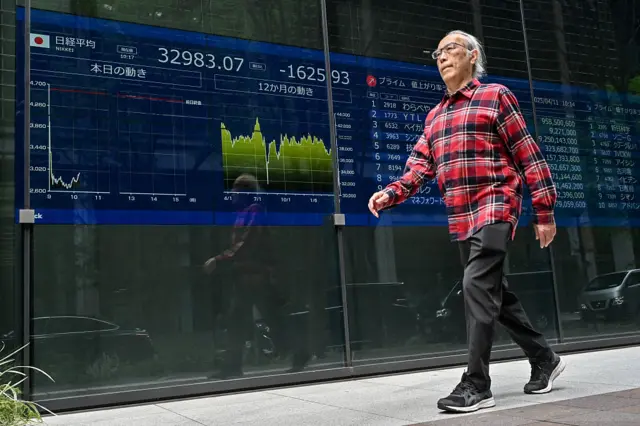 Image source, Get
Image source, GetAs Asian markets head into their afternoon, there's a more mixed picture than the falls we saw on some major indexes this morning.
Japan's Nikkei 225 is still down more than 4%, while the Hang Seng in Hong Kong is around 0.5% higher.
South Korea's Kospi and the Australia's ASX 200 remain down, trading at 0.8% and 1.3% lower respectively.
But Taiwan's Taiex is 1.6% higher, and India's Nifty 50 is up by around 2%.
